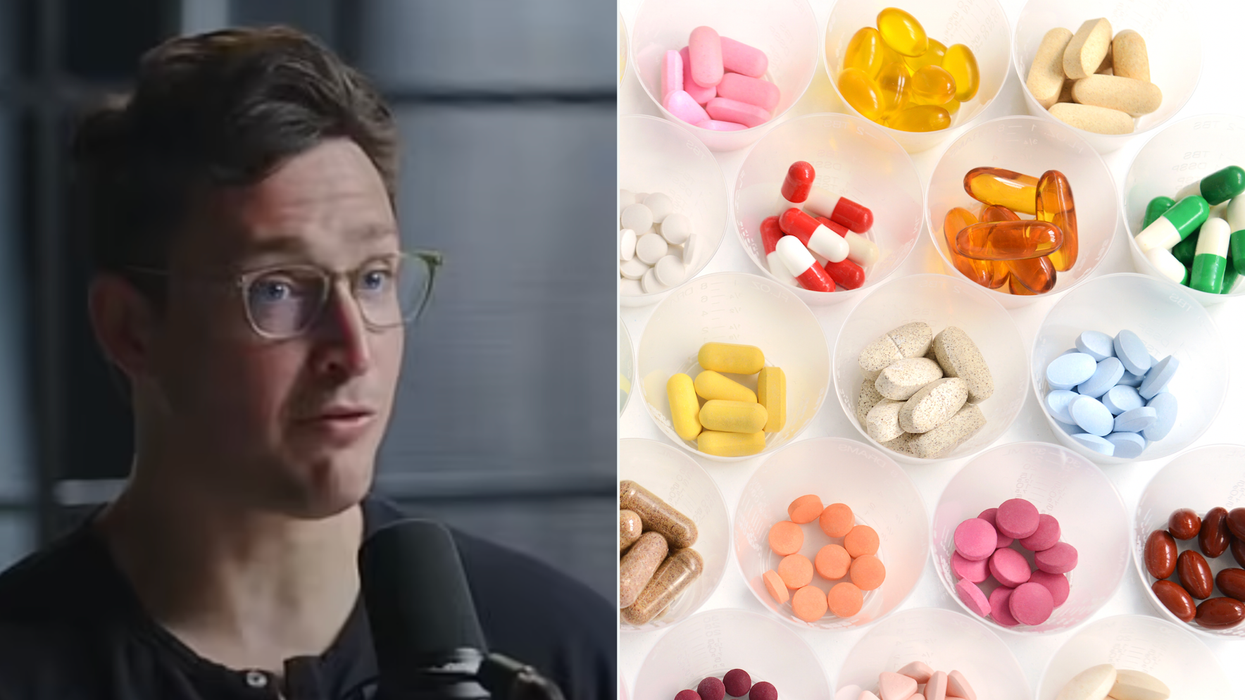Top doctor sounds alarm over popular health supplements sold over the counter: 'Not a good solution!'

Top doctor claims there is no credible evidence to support the use of supplements
|Diary of a CEO/Getty Images

- Doctor Mike Varshavski says no evidence to support supplements
- They 'distract' from what works, the doc warns
- Study finds many supplements contain undeclared ingredients
- A separate GB News investigation uncovered a link to cancer
Don't Miss
Most Read
A top doctor has the accused the supplements industry of making unsubstantiated claims that lead to bad health outcomes.
Supplements benefit from celebrity endorsements and bold promises but concerns are mounting over the dearth of evidence to support their use.
Doctor Mike Varshavski, a family physician and internet personality, shares many of these concerns, claiming that over-the-counter supplements are being sold to credulous consumers.
These lame duck products are a "distraction" from what actually works, he recently said on a popular podcast.
Ample evidence bears out his claims. Take multivitamins. Barring a handful of studies that have found some cognitive benefit, there's limited to no evidence to suggest that they protect the brain or heart.
A Harvard-led study published in the BMJ even suggested that the benefits associated with taking multivitamins could be all in the mind.

Supplements are not subject to the same regulatory scrutiny as pharmaceutical drugs
|Getty Images
Supplements are not subject to the same regulatory scrutiny as pharmaceutical drugs as they are sold as "natural" products.
GB News has previously argued that it's time to turn the screws on this shadow market, particularly in light of the worrisome link between dietary supplements and cancer.
And a recent study published in Analytical Science Journal exposed how many of the herbal products being sold today lack quality control.
Speaking on the Diary of a CEO podcast, Doctor Varshavski said: "Supplements, supplemental vitamins, are not necessary the huge majority of the time.
"The evidence for almost all supplements, unless you have a very specific reason for needing to take them, is missing.
"And what I've learned through my ten years of being a physician... is unless we're certain of some benefit, introducing new things, distracting people from things that work, is not a good solution."
The flip side
A case can be made for taking supplements to boost brain health.
For example, multivitamins were found to improve memory performance to the extent that it reversed brain age by three years in one study.
LATEST DEVELOPMENTS
 Popping a daily multivitamin may reverse age-related memory decline by three years | Getty Images
Popping a daily multivitamin may reverse age-related memory decline by three years | Getty Images A prior study found that a daily multivitamin improved thinking and memory — at least when evaluated with cognitive testing completed by phone.
What's more, multivitamins have proven to be relatively inexpensive and quite safe.
Still, your correspondent is inclined to heed the official NHS advice on health supplements: "Most people should get all the nutrients they need by having a varied and balanced diet, although some people may need to take extra supplements."
This means eating a wide variety of foods in the right proportions, and consuming the right amount of food and drink to achieve and maintain a healthy body weight.










